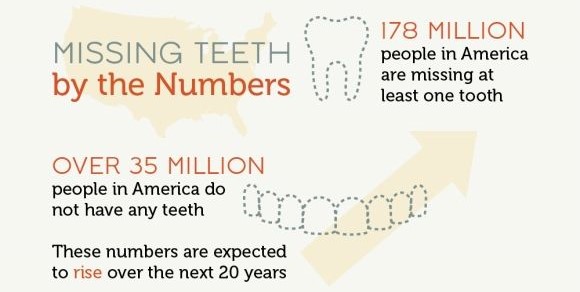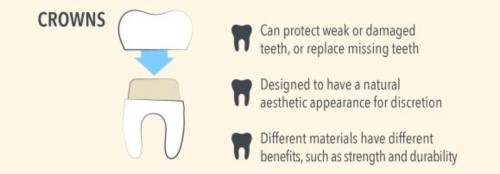Full-Mouth Dental Restorations You May Want to Consider
Posted On 7/25/2018 12:00:00 AM

If dental issues are widespread, a full-mouth dental restoration may be necessary. Unlike standard fillings, bridges and onlays that are more localized, some patients have teeth and oral health issues that encompass a large portion of the mouth. These are often the result of years of poor oral health care, an injury or accident, or complications from medication or a separate medical situation.
No matter the case, it’s often easier on both the patient and the dentist to restore the entire affected area of the mouth over the course of several appointments. The alternative is to routinely treat issues on a one-off basis. Here’s a closer look:
Full-Mouth Dental Restorations to Consider

View Full Dental Restoration Infographic
Though some of the following full-mouth restorations are all encompassing, it’s common for a patient to have more than one of these performed when seeking treatment for the entire mouth. Here’s a look at what can likely be expected:
All-on-4 Dental Implants
This is one of the techniques on the rise in dental practices, as it’s less invasive compared to installing conventional implants and still delivers an exceptional end product. Essentially, the process of All-on-Four dental implants involves installing artificial teeth on as little as just four implants. Installation times are fast and the process is also able to guard against further bone loss.
Inlay and Onlay Restorations:

If your teeth are too decayed to be repaired by a standard filling, then an inlay or an onlay is likely an ideal solution. They’re durable, help to strengthen the remaining part of the tooth and help minimize the necessity of future treatment on the area.
Dentures and Partial Dentures:
Dentures are a full-mouth restoration option for those with expansive tooth loss or teeth that require removal. Though dentures aren’t as durable or as permanent as All-on-4 implants, they’re still a viable and attractive option. Downsides to dentures are having to clean them daily and how they may slip around as you’re speaking or eating.
Crowns:

If your teeth are decayed to the point where both a standard filling and an inlay or onlay cannot adequately treat the issue, a crown is likely the next best option. Crowns are essentially caps that are placed over an existing tooth to restore its shape, size and function.
Fixed Bridges:
For more localized areas of tooth loss, fixed bridges are an ideal solution. Fixed bridges consist of prosthetic non-removable teeth designed to fill in areas of missing teeth or to help a patient maintain their facial shape.
A few more practices that worth mentioning that are often part of a full-mouth restoration include fillings (especially if the teeth are only slightly decayed where an inlay/onlay or crown isn’t necessary) and root canals.
Find a Jacksonville Dentist You Can Trust
For more information on the various types of treatments a dentist may recommend for a full-mouth restoration procedure, contact Kanehl Dental today to learn more.
Bruce A. Kanehl, D.D.S.
7933 Baymeadows Way #5
Jacksonville, FL 32256
(904) 731-2162
To learn more about how we can make you smile, request a consultation today.
Dr. Kanehl is one of a select few in the Jacksonville area to be a member of the American Academy of Dental Sleep Medicine and to treat sleep apnea with oral appliance therapy.




